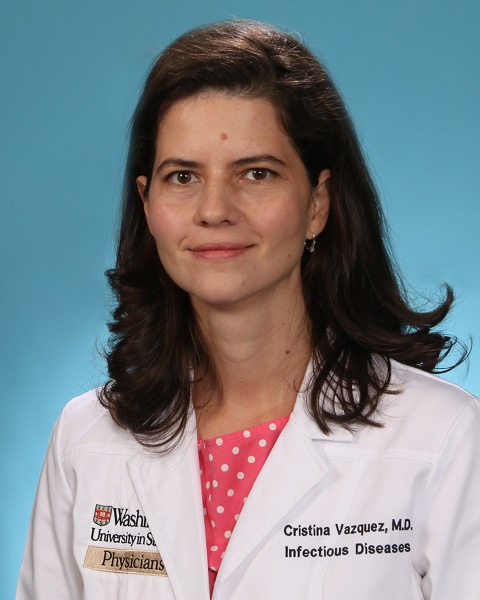
M Cristina Vazquez-Guillamet, MD (she/her/hers)
Associate Professor of Medicine
Washington University in St Louis
Saint Louis, MO, United States
As an “analytics translator”, my focus is to find innovative solutions to relevant public health issues such as hospital acquired infections, sepsis and antimicrobial resistance and transform complex analytics into comprehensible outputs.
With a background in Mathematics, I did my fellowship in Critical Care Medicine at Stanford University followed by Infectious Diseases at Washington University in St. Louis where I am currently practice as an infectious diseases consultant and medical intensive care unit attending. Most of my time is taken up by methods research. Overall, I aim to develop and enhance methods with easy to grasp results that help answer pressing questions and improve patients’ outcomes. Not rarely, I "borrow" methodologies from mathematics, economics and social sciences. I am the PI on NIH grants forcusing on risk stratification and prediction models in sepsis. My focus has expanded to encompass artificial intelligence methods including supervised and unsupervised learning with my most recent NIH funding looking at electronic health records data readiness for artificial intelligence algorithms. As such I collaborate closely and learn from computer science engineers on how to improve machine learning algorithms with a focus on "learning under uncertainty".
My research started with risk stratification models for Candida spp and multidrug resistant Gram-negative bacilli. I continued with multilevel models in sepsis incorporating social determinants of health and analyzing the impact of patient case mix on antimicrobial resistance startification models in sepsis. I am currently developing sepsis models relying on machine learning under uncertainty, building hierarchies of comorbidities and testing individual treatment effects in deep learning. I am also one of the co-investigators in the CDC Prevetion Epicenters Program develping an aggregate measure of antimicrobial resistance in Gram-negative infections and optimizing antimicrobial use based on this aggregate score.
Disclosure(s): OCGN, SESN, BNGO: Stocks/Bonds (Ongoing)
Presentation(s):
-
70 - Machine Learning for Health Care Epidemiology and Antimicrobial Stewardship
Thursday, October 12, 2023
1:45 PM - 3:00 PM US ET -
944 - Artificial Intelligence to Fill Knowledge Gaps in Epidemiology and Prevention
Thursday, October 12, 2023
1:45 PM - 2:10 PM US ET
